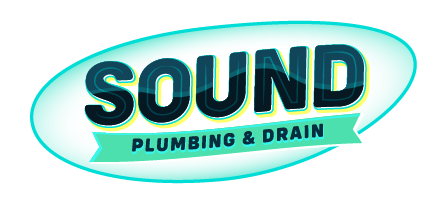How can you stop pipes from freezing and safely thaw them if they do freeze?
To prevent water pipes from freezing, insulate exposed pipes, keep your heating on at a steady temperature, and check for draughts. If pipes are already frozen, turn off the water supply, identify the frozen section, and slowly warm it up using a hairdryer on a low setting, a hot water bottle, or warm towels. Avoid using open flames or direct heat as these can damage the pipe.
Freezing temperatures can cause pipes to ice up, blocking the flow of water or even leading to burst pipes. This can cause leaks, water damage, and expensive repairs. Here’s how to prevent frozen pipes and what to do if they freeze.
Here's What We Have Covered In This Article
What should you do if your pipes freeze?
If you think a pipe is frozen, taking action quickly can help prevent it from bursting.
1. Check if your neighbours have water
Ask the neighbours if they are having the same problem. If they are, it might be an issue with the main water supply, and you’ll need to contact your water provider.
If it’s just your home, the problem is within your plumbing system.
2. Turn off the water supply
Find your stop tap (stopcock) and turn it off to stop water from building up behind the frozen section.
🔹 Where to find your stop tap:
- Under the kitchen sink
- In an airing cupboard
- In a basement, garage, or utility room
- Under the stairs
- Next to your water meter
If you’re away from home for winter, turning off the water supply before you leave can help prevent frozen pipes.
3. Locate the frozen pipe
Look for pipes that feel very cold to touch, have frost on them, or appear slightly swollen. Areas that are unheated or exposed to cold air, like lofts or garages, are more likely to have frozen pipes.
If only one tap isn’t working, the frozen section is probably near that tap. If no water is coming through at all, the freeze could be near the main supply pipe.
If you can’t reach the pipe, or it’s inside a wall, call a plumber rather than risk damaging it.
4. Thaw the pipe carefully
Once you’ve found the frozen section, warm it up slowly to melt the ice inside. Keep taps slightly open to allow melting ice to escape.
🔹 Safe ways to thaw a frozen pipe:
- Wrap the pipe in a warm towel soaked in hot water (not boiling)
- Apply gentle heat with a hot water bottle
- Use a hairdryer on a low setting, moving it along the pipe
🚫 Do not use open flames or direct heat sources like blowtorches or electric heaters, as they can damage the pipe and increase the risk of bursting.
Once the pipe has thawed, check for leaks before turning the water supply back on.
Frozen Pipes? Act Fast Before They Burst!
A frozen pipe can quickly turn into a costly leak. Get expert help to thaw pipes safely and prevent damage. Call now for urgent assistance.
How can you stop pipes from freezing in winter?
Taking steps before the temperature drops can prevent frozen pipes and save you from costly repairs.
1. Insulate pipes properly
Use pipe lagging, which is a foam tube that wraps around pipes to keep them warm.
✔ Pipes in lofts, garages, and basements should be insulated
✔ Outdoor taps and exposed pipework need extra protection
✔ If you’re unsure what to buy, ask at a DIY store
2. Insulate your water tank
If you have a cold water tank in the loft, wrapping it in an insulation jacket helps prevent freezing. Make sure the tank isn’t sitting directly on insulation, as this can stop heat from rising to it.
3. Fix dripping taps before winter
A leaking tap can increase the risk of freezing, as water sitting in the pipes can turn to ice.
✔ Turn taps fully off
✔ Repair leaks before the cold weather sets in
4. Keep heating on a low setting
Keeping the heating at a steady 12-15°C can help stop pipes from freezing. If you’re away for a few days, set the thermostat to at least 5°C to keep water flowing and prevent frozen pipes.
5. Stop draughts and keep the warmth in
✔ Seal gaps around doors and windows
✔ Use keyhole covers and letterbox insulation
✔ Bleed and powerflush radiators to keep them working efficiently
6. Shut off outdoor taps
Outdoor taps are high-risk areas for freezing. If possible, shut off the isolating valve leading to the garden tap. If that’s not an option, use a tap cover or an insulated box to protect it from cold weather.
7. Get your boiler serviced before winter
A well-maintained boiler keeps your heating system running efficiently, reducing the risk of frozen pipes. An annual service can help catch any issues before they cause a problem.
What else should you do to prepare for cold weather?
Frozen pipes aren’t the only winter problem. To avoid surprises, it’s a good idea to:
✔ Check the roof for loose tiles
✔ Clear gutters to prevent blockages
✔ Fix weak fences or gates before storms hit
✔ Stock up on essentials like torches, batteries, and non-perishable food
If you take medication, check if your pharmacy offers home delivery, just in case bad weather makes it difficult to go out.
Stop Your Pipes Freezing This Winter!
Protect your home from frozen and burst pipes with expert insulation and maintenance. Book a winter plumbing check today.
Need help with frozen pipes? Call a plumber today
If your pipes are frozen and you can’t thaw them safely, or you suspect a burst pipe, it’s best to call a plumber before the damage gets worse.
📞 Call us today on +1 360-768-6857 and we’ll get your plumbing back to normal.






